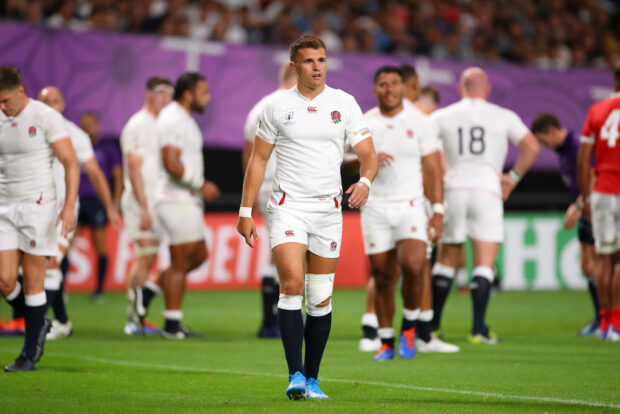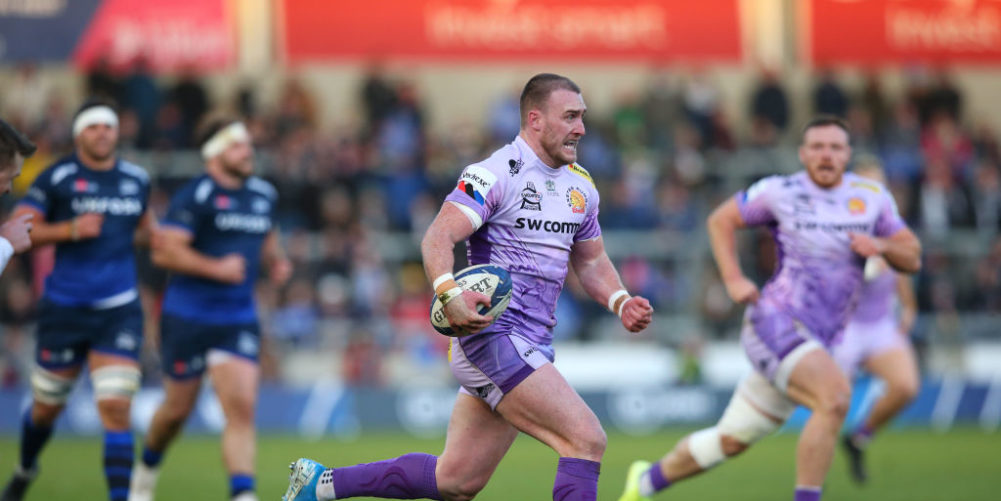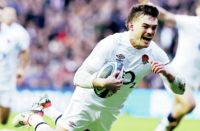EXETER'S squad is talented, but while it has been incredibly competitive in the Premiership over the last four seasons, it has left Rob Baxter puzzling over what the missing link is when it comes to replicating it in the European Cup.
What the Chiefs director of rugby will know by now is that to be among the top dogs in Europe you must have an interchangeable heavyweight pack that is a strong off the bench as it is in the starting 15, a 9-10 partnership with brains, and a backline with more than a sprinkling of stardust.
A player who has added to Exeter's stardust bank this season is the Scotland full-back Stuart Hogg, and it is no coincidence that his arrival this season sees the Devon side go into tomorrow's fourth round back-to-back return leg against Sale unbeaten at the top of their European Cup pool.
Hogg has the pedigree of not only being a Lions tourist in 2013 and 2017, but also being named twice as Six Nations player of the tournament (2016 and 2017).
He is a good footballer who reads the game very well – and who has the speed to make those attributes count. As well as being quick, Hogg's kicking game is varied, and he can pull defences out of shape with long spirals or downtown kicks into the opposition half, or use grubbers and chip-kicks which leave defenders playing catch-up.
Like England full-back Elliot Daly and his Welsh counterpart Liam Williams, the Scot is quick enough to also play on the wing – and like them he is much more of an attacking 15 than a defensive one.
Hogg is not the tallest full-back, and nor is he the most commanding in the air – however, because he has played in the position for much longer than Daly, he is not often exposed in the same way under the high ball.
The keys to success in the air are recognising that if you have footballing ability you should also have timing – and, after that, it is about being brave enough to challenge for the ball when you are off your feet.
It is also important to recognise that all full-backs are vulnerable in defence, because they are often faced with two-on-ones. I would expect most full-backs to make their one-on-one tackles, but faced with two attackers you can be guilty of waiting too long to make a tackle, or being guilty of going for an interception – and in both cases you look stupid because you are in limbo.
In my experience, you have to make a decision, and commit to it. The most failsafe way of doing that is to hit the ball carrier at the first opportunity and force him to make a pass, because, that way, you can pressure him into making a mistake.
While Baxter has bought into Hogg's attacking ability, the full-back has to contend with the reality that when you are on the radar as an international player, opponents are always trying to find ways to shut you down.
When that happens, you have to bide your time, be patient, and don't try to force it. You cannot always be the alchemist – and you won't make many friends if you continuously get caught trying to run the ball from the back.
For instance, don't always try to make the break, instead, move it and support. You can't do something brilliant every time you get the ball. You have to understand patience.
Hogg is a seasoned international and all the signs are that he is doing the right thing at the right time for Exeter, including linking well with their other international backs, Henry Slade and Jack Nowell.
That is an X-factor trio, because Slade has the creative touch to find gaps in defences, Hogg has the pace to come into the line and exploit them, and both have the passing skills to put Nowell in the clear.
Hogg's arrival at Sandy Park certainly enhances the attacking options, and the threat he poses will open up more space for Slade and Nowell. That can only be good for Exeter's England duo, because both are having to fight for their places in the Red Rose starting line-up.
Although Nowell was in Japan he was injured for most of the World Cup, and in his absence Eddie Jones settled on a back three of Daly, Anthony Watson and Jonny May. The England back three is very competitive, and Nowell will have to be at his best for the Chiefs to break back into the starting fifteen.

It has taken Slade longer than we thought to become established in the England side, and when George Ford started playing well at the World Cup, forcing Owen Farrell and Manu Tuilagi to move one-out, it was the Exeter 13 who more often than not was benched.
At the moment, neither Nowell nor Slade are automatic first choice picks for England in the way that Farrell, Tuilagi or Maro Itoje are – however, helping the Chiefs to the top of a tough pool in the European Cup can only help their cause.
If Exeter stay ahead of Sale, Glasgow and La Rochelle to win Pool 2 they will achieve a home draw in the quarter-finals, however, given their past European Cup record, there will be big doubts over whether they can make the semi-finals.
There were similar doubts when they won promotion to the Premiership back in 2010, but since then they have won the title once, and been losing finalists three times. They have yet to knock on the door in Europe, but this time it looks like they might.
It is a big year for Exeter, because they are favourites to win the league following the Saracens salary cap deduction, and they are also fighting on the European front.
It remains to be seen if they can get their heads around going at it full tilt in the Premiership and Europe at the same time, especially as I do not have the sense of Sandy Park being a fortress.
The Chiefs' ground is a lovely place to play a game of rugby, but it's not an intimidating ground because the Exeter crowd is as fair as you can get – they like good rugby, and appreciate if the opposition play well.
The ground is, however, a bit quirky, with the shifting wind factor, and a little slope here or there – and the Chiefs know all the quirks. That could act in their favour.


























